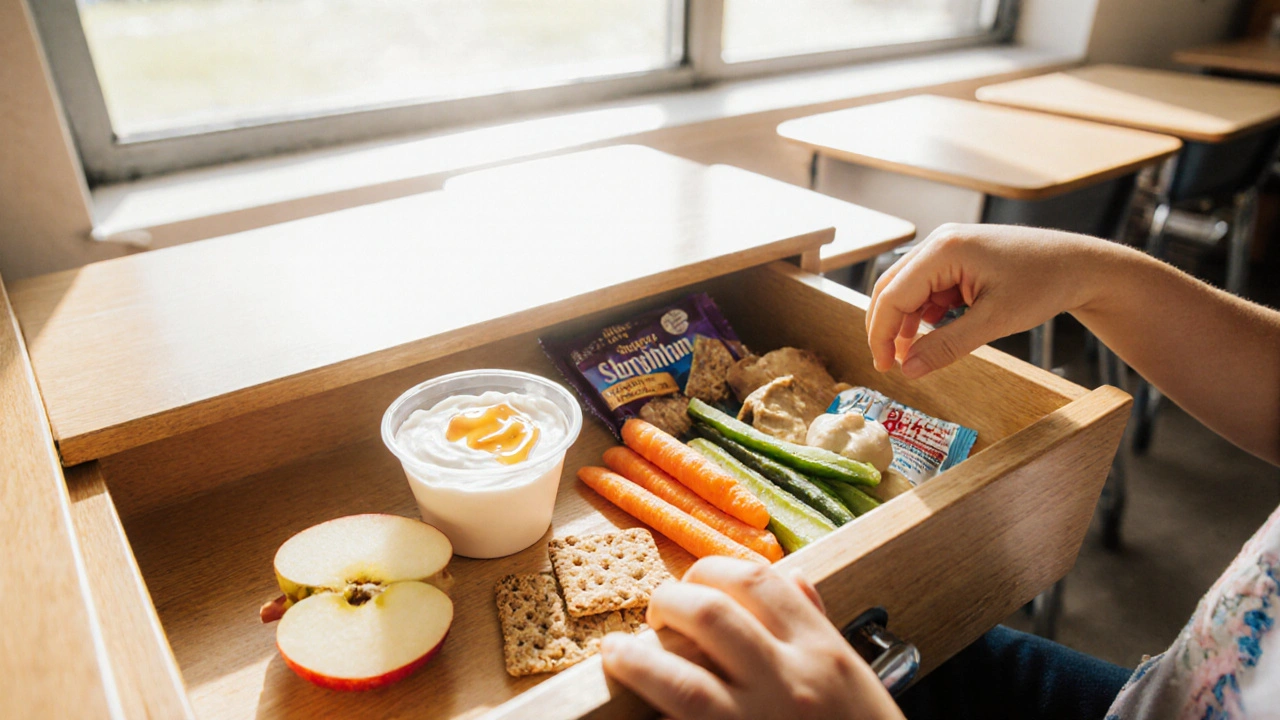Sugar-Free Snacks for a Healthier Everyday
When talking about sugar‑free snacks, foods that contain little to no added sugars and rely on natural sweeteners or the natural flavor of ingredients. Also known as no‑added‑sugar bites, they help keep blood sugar steady, curb cravings, and fit neatly into weight‑control plans. Because they skip the extra sugar, these snacks often feel lighter, taste fresher, and avoid the crash that sugary treats can cause.
One major family they belong to is healthy snacks, options rich in protein, fiber, vitamins, and minerals that support overall wellness. Think roasted chickpeas, nut mixes, or veggie sticks with hummus. Sugar‑free snacks sit within this group as a clean‑eating subset that removes the hidden sweeteners while preserving the nutrient punch. By swapping a candy bar for a handful of sesame‑seed bars, you keep the snack satisfying without the added sugar load.
Another overlap appears with gluten‑free snacks, foods made without wheat, barley, or rye, catering to those with celiac disease or gluten sensitivity. Many gluten‑free products, such as rice‑cake spreads or almond‑flour cookies, are also formulated to be sugar‑free, creating a double‑benefit for people managing both gluten and sugar intake. Ingredients like coconut flour, chia seeds, and unsweetened cocoa often serve both purposes, delivering texture and flavor without triggering gluten or sugar concerns.
On a broader nutritional level, these bites power a low‑sugar diet, a eating plan that limits added sugars to improve metabolic health and maintain steady energy levels. Studies show that keeping added sugars under 10 % of daily calories can lower risk of type 2 diabetes and heart disease. Sugar‑free snacks act as the bridge between meals, preventing the spikes and dips that can sabotage focus and mood. By choosing a cinnamon‑spiced nut mix instead of a sugary granola bar, you help your body stay in a balanced glucose zone.
When brain power matters—like during study sessions or long work hours—sugar‑free options often double as brain‑boosting snacks. Foods rich in healthy fats, such as walnuts, pumpkin seeds, and dark chocolate with no added sugar, supply steady fuel for neurons. The lack of rapid‑acting carbs means you avoid the mental “crash” that follows a sugary binge, keeping concentration sharp for longer. Pair a handful of mixed nuts with a few slices of apple (no sugar added) and you’ve got a snack that steadies blood sugar while delivering omega‑3s and antioxidants.
Practical Tips for Making Sugar‑Free Snacks Work for You
Start by pantry‑stapling a few basics: raw nuts, unsweetened coconut flakes, chia seeds, and spices like cinnamon or cocoa powder. Mix them in bulk, portion into zip‑lock bags, and you have grab‑and‑go fuel that stays fresh for weeks. For on‑the‑move convenience, try making single‑serve oat‑free bars using mashed banana, almond butter, and a dash of vanilla—no added sugars needed. Store in the fridge and they’re ready for a quick boost before a meeting or a study break. By planning ahead, you replace impulse buys with choices that align with a low‑sugar, gluten‑free, and brain‑friendly lifestyle.
Below you’ll find a curated set of articles that dive deeper into stress relief, mindfulness, and nutrition—topics that naturally pair with the snack strategies you’ve just read about. Explore each post to discover how the right snack can complement your mental‑health routines, support gut health, and keep you energized throughout the day.
Nutritious Snacks to Boost Your Child’s Health
- Lyra Whitfield
- Oct, 20 2025
Learn how to choose, prepare, and serve nutritious snacks that boost kids' health, focus on balanced nutrients, and fit Australian dietary guidelines.
Learn More